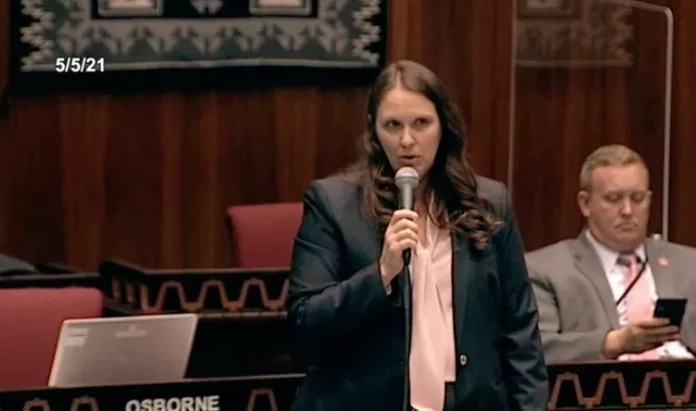
Arizona taxpayers could see a significant line on their property tax bill limited in a proposed overhaul of the state’s school funding formula.
The House Appropriations Committee voted along party lines Monday for an amended Senate Bill 1269. If enacted, it would spend an additional $215 million in the coming state budget and send about $172 million to public schools and $42 million to charter schools. The increased spending would continue in subsequent years.
In exchange for increased state funding, the Joint Legislative Budget Committee (JLBC) said the bill would phase out over five years the ability of schools to levy primary property tax levies currently allowed by the Transportation Revenue Control Limit. Transportation is one of a handful of expenses school districts can use to justify increasing a local property tax levee.
JLBC estimated the net tax reduction would increase to $81.2 million by fiscal year 2027.
Schools could also opt-in to the program that charter schools would receive annual funding, but they must forgo any new supplemental property tax increases. Supporters expect rural schools with limited property tax bases to find this option attractive.
The analysis estimated some schools would lose money in the change, but representatives said the bill’s final version would have money to keep those districts held harmless.
Supporters of the reform said uniform distribution by the state addresses long-standing inequities between rural schools with a smaller property tax base and urban districts flush with cash from years of population growth.
“Opponents of this bill will continue to proclaim and provide solutions that just infuse a billion more dollars into already unfair system,” said Matthew Simon, vice president of advocacy and government affairs for Great Leaders Strong Schools. “This is a fiscally prudent solution to incrementally reform our system to better reflect our state’s current realities.”
Simon pointed to Phoenix Elementary, which spends $6,000 more per student than rural schools like Toltec Elementary.
The funding overhaul also would do away with the Teacher Experience Index, a program that pays veteran teachers more. That elimination, along with ending some other teacher incentive programs, would save the state $124 million in the coming fiscal year.
Democrats and teachers union representatives said SB 1269 furthers inequity by creating a new revenue stream for Arizona’s charter schools and removing the educator bonuses.
“This clearly shifts funding to higher-performing schools, many of those are charter schools,” Rep. Kelli Butler, D-Phoenix, said. “This takes away the Teacher Experience Index, that rural schools rely upon not only to pay their teachers but to impact their economy when a lot of teachers in rural areas are employed in our school districts.”
State Rep. Michelle Udall, R-Mesa, told the committee the teacher pay programs fuel state funding inequity.
“While it makes sense that districts that have more experienced teachers are paying them more, it’s also a self-perpetuating system because those same districts are going to have enough money to take the most experienced teachers again and again,” Udall said.
Arizona law does not dictate where those additional funds must be spent, meaning the funds aren’t always increasing veteran teacher pay.
The bill must succeed in the House and one last vote in the Senate before it can land on Gov. Doug Ducey’s desk for consideration.
Republished with the permission of The Center Square.













